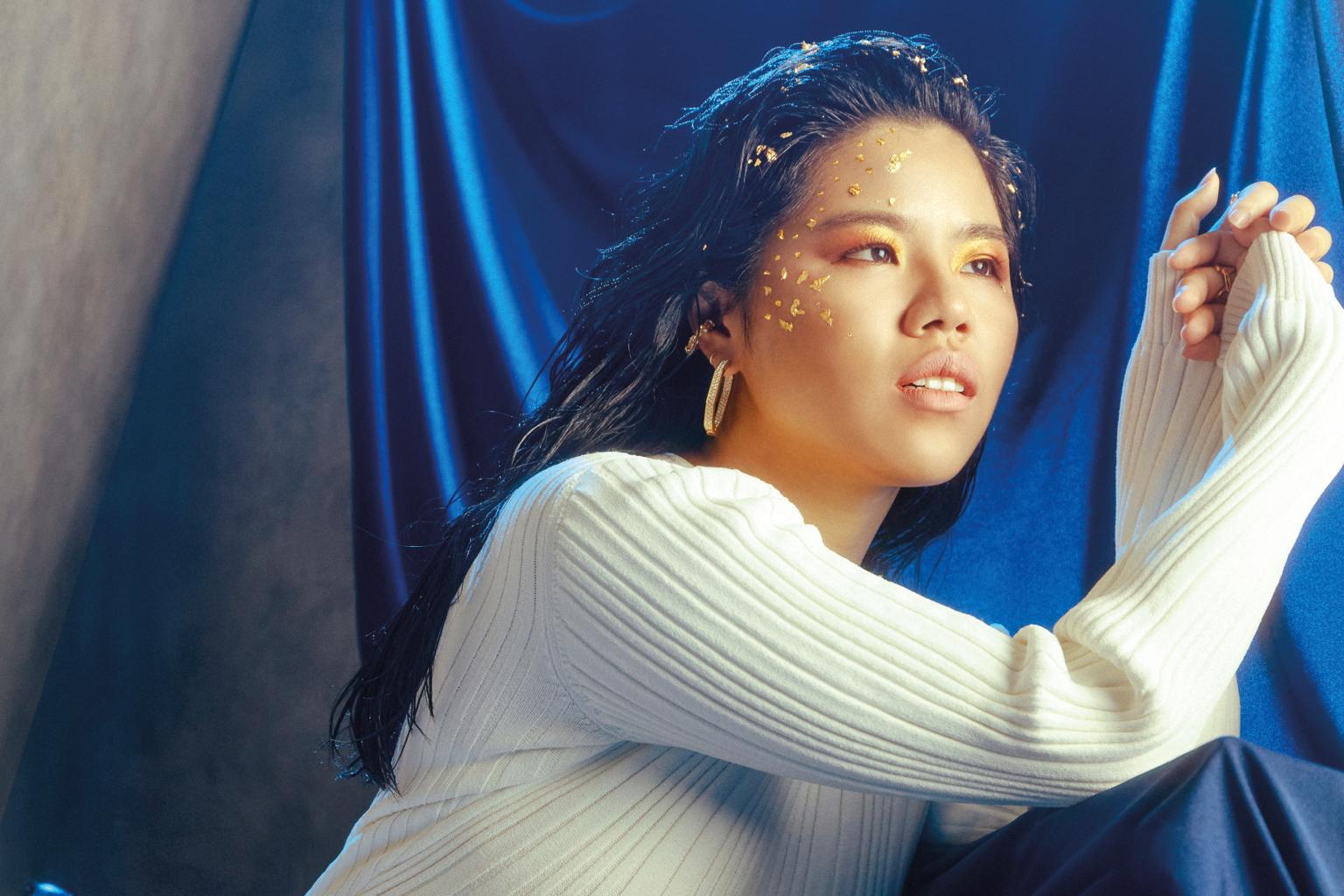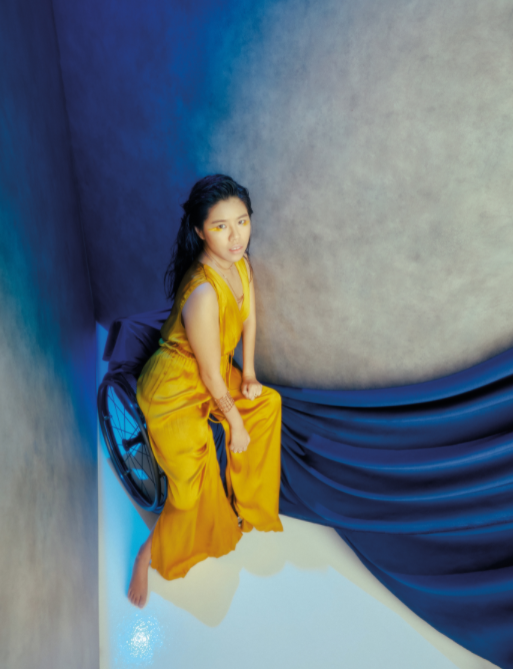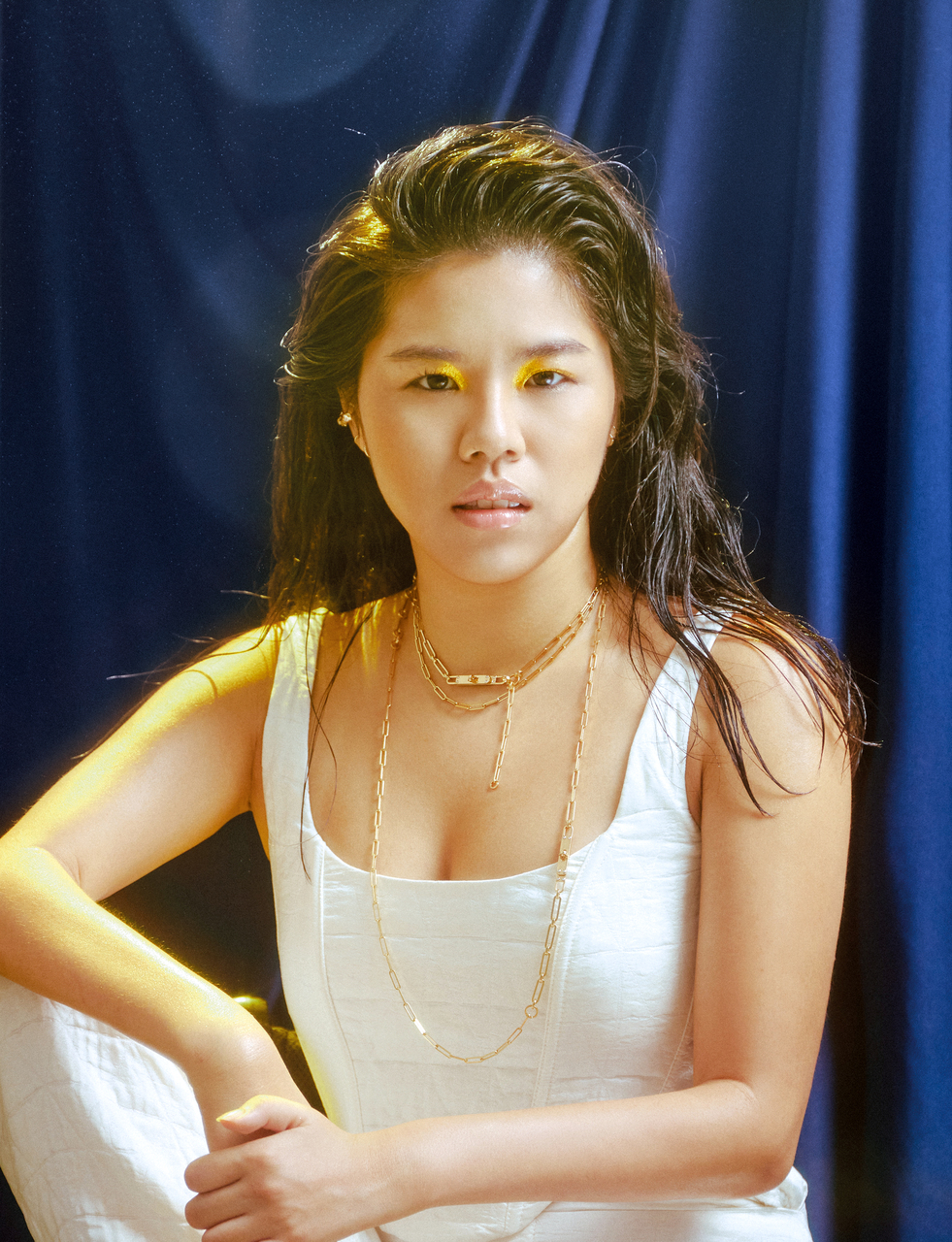Golden Girl Yip Pin Xiu on a mission
Sign up now: Get ST's newsletters delivered to your inbox

Yip Pin Xiu already has her sights set on the Paris Paralympics in 2024.
PHOTO: HARPER'S BAZAAR SINGAPORE
This article first appeared in Harper's Bazaar Singapore, the leading fashion glossy on the best of style, beauty, design, travel and the arts. Go to www.harpersbazaar.com.sg and follow @harpersbazaarsg on Instagram; harpersbazaarsingapore on Facebook. The January 2022 issue is out on newsstands now.
SINGAPORE - Yip Pin Xiu, 29, is as radiant as the six gleaming Paralympic medals - five golds and a silver across four Games - she has under her belt.
Warm, positive and terribly sweet, the national swimmer - fresh off wins at 2021's Tokyo Games - already has her sights set on the Paris Paralympics in 2024.
Her journey, she lets on, started when she was just five, when the whole family would accompany her brother to his swimming lessons.
"I'd usually be playing in the baby pool by myself. Eventually, I asked my mum if I could swim too. She asked the coach, who said, 'Yeah.' She had a student who was an amputee, so she knew that it was possible for people with physical disabilities to learn swimming."
Yip took to the water immediately.
"I love the freedom of the water. On land, I felt heavy. Sometimes, walking was tough. But in the water, I could do anything that anybody else could do," says Yip, who was diagnosed with muscular dystrophy when she was two.
Her condition, known as Charcot-Marie-Tooth disease, causes progressive weakening of the limbs and affected her ability to walk. She found relief and independence when she started using a wheelchair at 13, as it meant she no longer had to rely on other people to get around.
"I felt very different when I was in primary school," she discloses. "No one in my school had a disability and there was no media representation. You don't see disabled people on the streets either. I think the culture was such that if you have a disability, you don't really go out. I just felt very alone when I was a kid."
It was only after she started competitive swimming at the age of 12 that she found true freedom - connecting with people with disabilities and learning from role models to carve out the life she wanted for herself.
She credits her achievements in the pool to her friends, family, coaches and fellow athletes who support and cheer her on.
The 2020 Tokyo Paralympic Games was particularly challenging, not just physically, but also mentally. She sometimes got emotional grappling with the uncertainties of the pandemic, not knowing if the Games would go ahead or be cancelled.
"I'm very fortunate to have support and a network of people I can speak to," she says.

Yip brought home two gold medals for the S2 50m and 100m backstroke at the Tokyo Games. Her success in defending the titles she had earned at the 2016 Paralympic Games in Rio sparked a conversation about the disparity between the treatment of Olympic gold medallists and Paralympic gold medallists, especially the cash incentives.
When Singapore swimmer Joseph Schooling clinched the historic gold medal for the 100m butterfly at the Rio Olympics in 2016, he was rewarded with $1 million.
Yip, meanwhile, received only $100,000 when she won Singapore's first Paralympic gold medal in 2008, and $200,000 for each of the gold medals she won last year.
In October 2021, with DBS coming on board as a sponsor for the Singapore National Paralympic Council's Athletes Achievement Awards, the prize money for the two gold medals Yip won in Tokyo was upped to $800,000.
Yip maintains that the support she received from Sport Singapore (a statutory board of the Ministry of Culture, Community and Youth) has been the same and she has never felt that she was not a priority as an athlete.

hbyip28 - Yip Pin Xiu Credits : Harper's Bazaar Singapore Photography: Jayden Tan Styling: Gracia Phang
PHOTO: Harper's Bazaar Singapore
She is happy, though, that steps were taken to right "the disparity that was quite clear in the eyes of the public".
That said, she asserts that she does not "swim for the money" and is simply "glad that people are fighting for us".

She hopes that Singaporeans will continue to support all Team Singapore athletes, just like how people in Britain support their national footballers even during the off-seasons. To her, this means fostering a love of sports, following the athletes throughout their journeys and not being just a fair-weather supporter.
"It takes a village to raise a champion," she says. "The more people there are in this village, the better it will be."

<p>Magazine cover: Harper’s Bazaar Singapore (January 2022 issue)</p>
PHOTO: Harper's Bazaar Singapore


